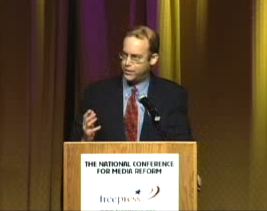Legal Chill Worries Drug Bulletin
Submitted by Bob Burton on
The case of a judge granting an injunction to prevent a group of medical professionals publishing a critical review of the herbal drug Tebonin has the editor of a major drug bulletin worried. The editor of Australian Prescriber, John Dowden, notes that in two other instances where drug companies sued drug bulletins, the judgements favoured the publishers.



 "Media democracy" is a term that everyone defines a little differently.
"Media democracy" is a term that everyone defines a little differently.